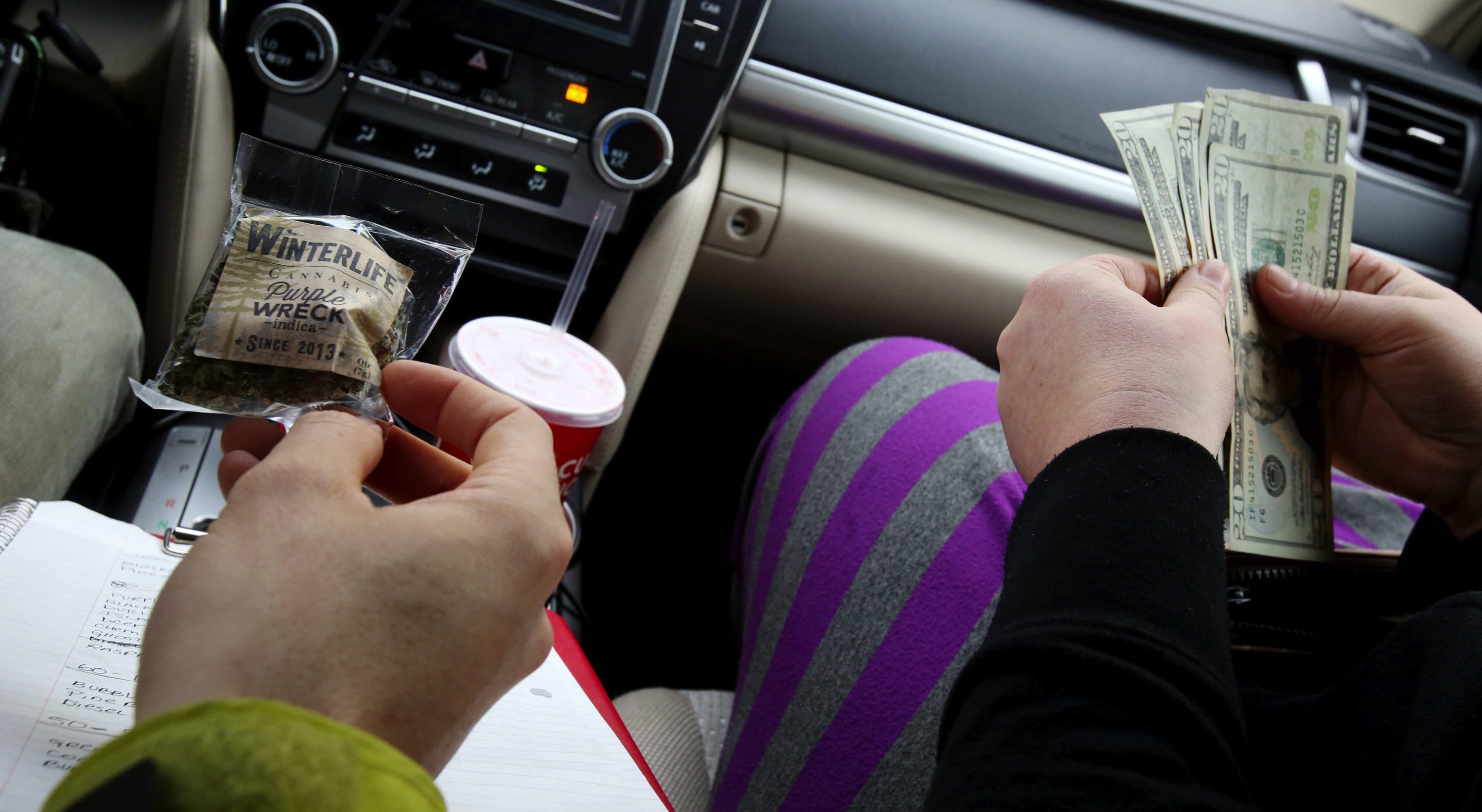SEATTLE — Wombat sat in his car in a Wallingford parking lot, waiting to make a drug deal.
Shannon, 33, hopped in, her first time buying pot from the delivery service that Wombat — not his real name — works for. It’s called Winterlife and because of its questionable legality, employees use animal pseudonyms, such as Otter, Owl and Fox.
Shannon showed Wombat her ID. He showed her a couple different strains of pot in clear tidy packages and an array of pot-laced cookies, truffles and chocolate bars. She bought a quarter-ounce of Purple Wreck for $80 and several edibles for $25. This wasn’t medical marijuana. This was the newly legal recreational variety.
Shannon didn’t want to disclose her full name and occupation. But she did nothing illegal, according to Washington’s voter-approved recreational-pot law.
The law allows adults to possess up to an ounce of pot and a pound of marijuana-infused edibles. Where and how they got the products are not legally relevant, said Alison Holcomb, chief author of the law and criminal-justice director at the ACLU of Washington.
Winterlife is filling a void, said Evan Cox, one of the company’s founders and owners. Pot consumers have been in limbo ever since Washington’s new law took effect in December 2012. They can legally possess weed but there’s no place for them to legally buy it until state-regulated stores open in late spring or summer.
Winterlife isn’t the only service offering delivery of recreational pot. Others can be found in Craigslist ads, including Raccoons Club, a Winterlife spinoff.
But Winterlife is the most prominent with its advertising, appearances in local media and sophisticated website. Winterlife has more than 1,000 customers, said Cox, AKA “Possum.”
“It’s so convenient,” Shannon said. “It’s as easy as ordering pizza but faster.”
But services that now sell recreational pot are committing a felony under state law, Holcomb said. Only state-licensed businesses can sell marijuana.
Cox acknowledged that he’s taking a calculated risk. He believes Winterlife’s precautions and overarching policy of “no kids, no shipping and no BS” makes his business legally defensible.
The Seattle Police Department may not go after Winterlife, according to a spokesman. “It’s not legal. It undermines the spirit of the law. But like anything else, our department takes all the complaints and dedicates our resources in a way that makes sense and is going to be most impactful,” said Sgt. Sean Whitcomb.
He compared the delivery services to speeding drivers. “They’re doing about six miles over the limit on the freeway. They’re banking they’re not going to get stopped,” Whitcomb said.
In previous stories about Winterlife on TV and in The Stranger newspaper, Cox hasn’t used his full name or allowed himself to be clearly photographed. But emboldened by such comments from the police, he was willing to do both for The Seattle Times.
• • •
“Hey it’s Wombat at Winterlife.”
Wombat was on to his second delivery, a little after noon, on a recent day. The new customer he called lives in the suburbs and Winterlife only delivers in Seattle. They arranged a meeting in the University District.
Wombat, 25, is a culinary-school graduate. He’s extremely polite, well-groomed and always uses his turn signals. He was a customer himself, he explained, built a relationship with his delivery guy, Otter, and couldn’t turn down the opportunity, he said, to make good money at Winterlife as its business grew.
He picked his own animal name. He wanted something to distinguish him from the Bear and Bull, Owl and Elk.
His mom is nervous about the job, he said. “I tell her it’s as legal as can be at the moment.”
Wombat gets paid a percentage of what he sells. Some days he sees 10 customers; on others it’s more like 30. Most people buy quarter-ounces, he said, which tend to run about $80. Many customers tip as well.
“I think there’s more risk of robberies than being busted by Seattle police,” he said.
Wombat hasn’t been robbed. But Cox said he was held up at gunpoint. Since then the company has done better at screening customers, he said.
Thieves tend to reveal themselves in questions they ask and in other ways, Wombat said. “We have filters for weeding out nefarious customers,” Cox said.
About 30 percent of Wombat’s customers are happy to have him come to their homes, he said. The rest prefer to rendezvous at public sites, especially cautious first-time customers and tourists.
In terms of selection and prices, Shannon said Winterlife is “awesome.”
She feels the quality of her neighborhood dealer’s weed has recently slipped. “My guy is going to have to up his game if he wants to stay competitive,” she said.




